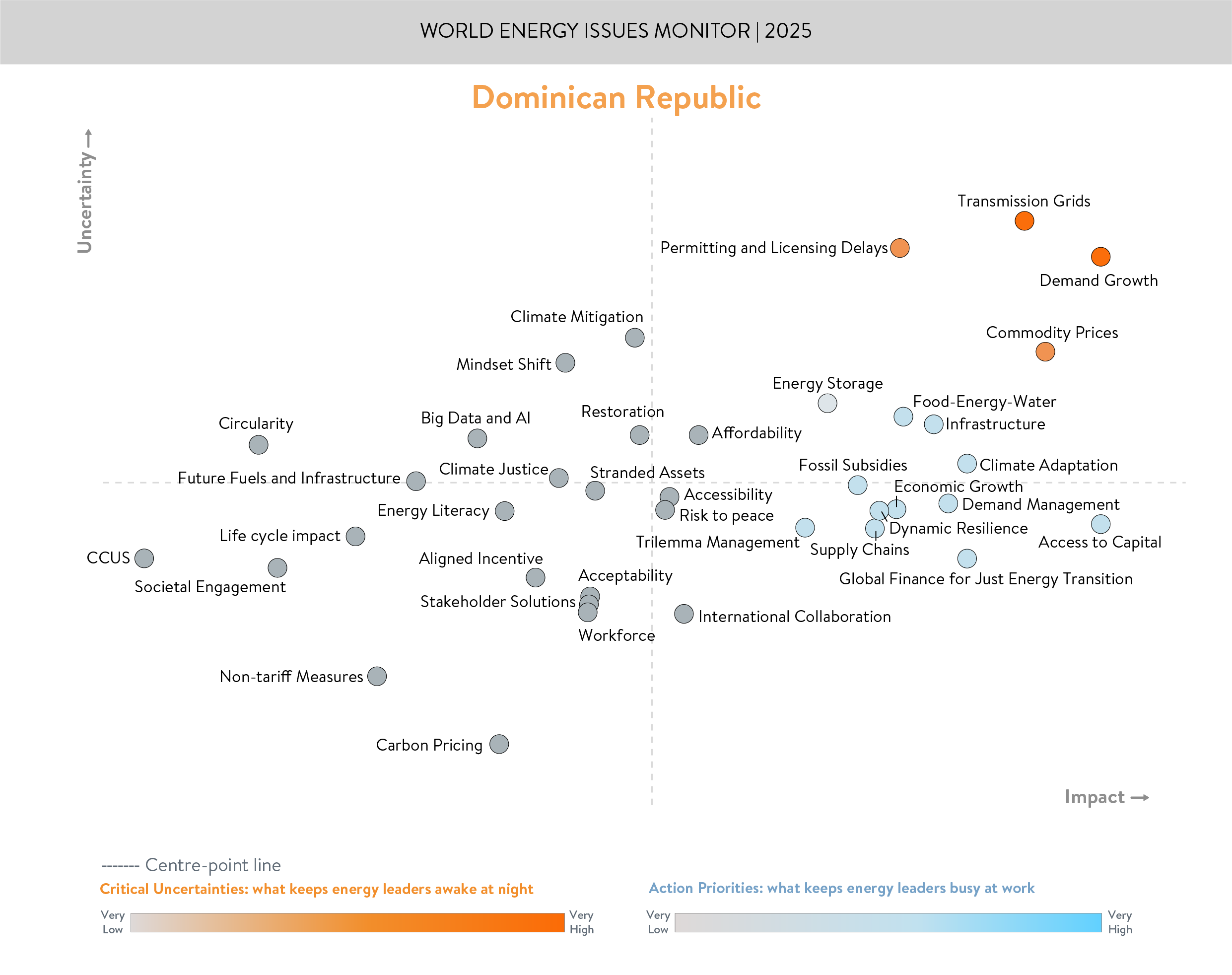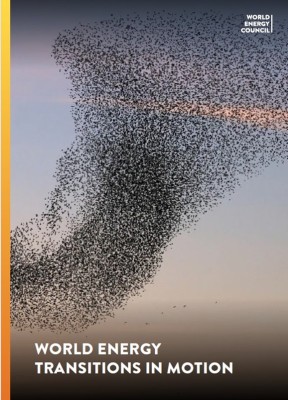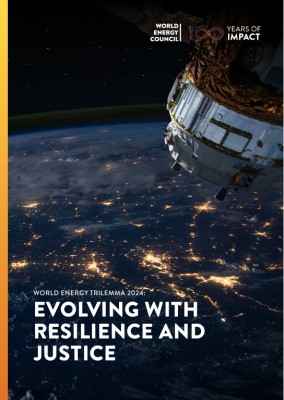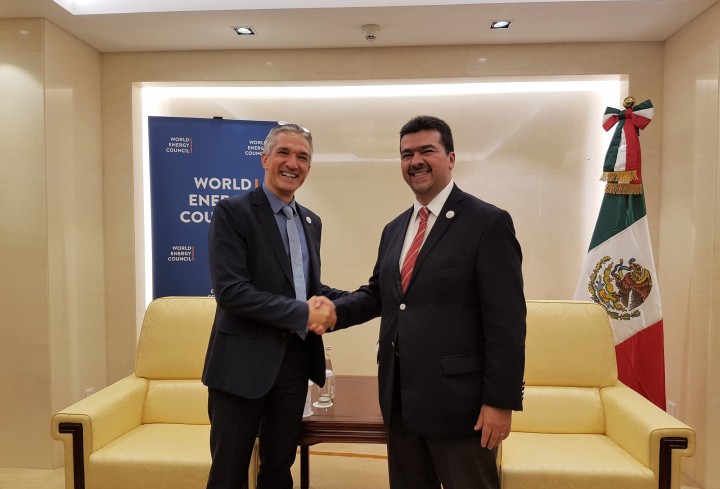ENERGY IN THE DOMINICAN REPUBLIC

ENERGY ISSUES IN MOTION
The Dominican Republic is undergoing a critical energy transition. A robust expansion of renewable energy marks this transformation, as does a growing wave of private investment and a continuous evolution of our regulatory framework. As a small island developing state (SIDS), we face the ongoing challenge of balancing decarbonization with energy resilience and affordability, all while navigating global market volatility and pressing domestic needs.
The country has made remarkable progress in diversifying its energy matrix in recent years. Renewable energy sources, particularly solar and wind, account for over 20% of our installed capacity. This upward trend reflects our national commitment to achieving 30% renewable penetration by 2030. To support this shift, our grid is undergoing critical upgrades to improve flexibility and ensure stable integration of variable resources. System operations are being modernized, and new regulatory instruments, such as ancillary services and revised dispatch protocols, are being developed under the SENI framework.
A key priority for the Dominican Republic is regulatory modernization. The current legal framework must evolve to keep pace with technological change, including the rise of distributed generation, energy storage, and digitalization. There is a recognized need and strong political will to develop complementary norms and updated rules that reflect the complexity of our modern energy system. Strengthening the regulatory ecosystem and ensuring consistency in environmental and financial legislation are essential for long-term sustainability and stakeholder confidence.
FROM BLIND SPOTS TO BRIGHT SPOTS
The Dominican energy sector continues to attract substantial regional and international investment. Several independent power producers (IPPs) and battery storage projects reached financial closure in 2023–2024, reflecting growing market confidence. Yet, persistent barriers include currency risk, administrative bureaucracy, and the lack of remuneration mechanisms for key services provided by renewable energy sources.
Ongoing efforts to streamline permitting and strengthen digital governance are helping to create a more investor-friendly climate. Additionally, the upcoming reform of the General Electricity Law is expected to provide much-needed clarity, update, and modernization regarding market roles, planning responsibilities, and institutional mandates.
ADDRESSING CRITICAL UNCERTAINTIES TO BALANCE THE WORLD ENERGY TRILEMMA
Energy security and climate resilience are central themes in our national energy narrative. Although recent efforts to diversify fuel sources (including expanded LNG use) have improved our position, most electricity generation still relies on imported fossil fuels. We aim to reduce this dependency through increased efficiency, greater transport electrification, and accelerated adoption of renewables. Additionally, resilience measures are being prioritized to address the impact of extreme weather events, with new infrastructure standards and distributed generation solutions deployed in critical public service areas.
Ensuring universal energy access continues to be challenging, particularly in remote and underserved communities. The government has reaffirmed its commitment to expanding renewable mini-grids and implementing social tariffs for vulnerable populations. However, affordability pressures are rising due to higher generation costs and ongoing subsidy reforms. A just transition requires inclusive dialogue, expanded energy education, and stronger citizen participation to build trust and ensure no one is left behind.
Looking to the future, innovation is a pillar of our energy vision. Exploratory initiatives in green hydrogen, demand response, and smart metering are underway, supported by technical cooperation and international financing. Our national planning is increasingly data-driven, supported by platforms based on reliable Energy Information Systems. Regional collaboration is also advancing, including cross-border interconnection studies and joint procurement initiatives within the Caribbean.
In summary, the Dominican Republic remains firmly committed to building a cleaner, more inclusive, and more resilient energy future. Accelerated regulatory harmonization, strategic public-private partnerships, and institutional strengthening will be essential to our transformation pathway.
Acknowledgements:
Dominican Republic Member Committee
Belkys Emely Rodríguez
Downloads

Dominican Republic World Energy Issues Monitor 2025 Country Commentary
Download PDF
World Energy Issues Monitor 2025
Download PDF
Dominican Republic World Energy Trilemma Country Profile 2024
Download PDF





